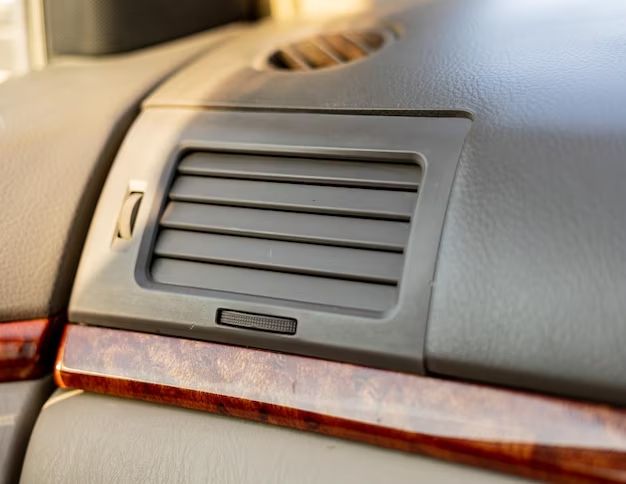Putting a portable heater in your car during cold weather may seem like a good idea, but there are some important safety considerations to keep in mind. Here is a quick overview of the main concerns and best practices for safely using a portable car heater.
Page Contents
Potential Dangers of Portable Car Heaters
While portable heaters can provide comforting warmth in frigid temperatures, they also pose some risks, including:
- Fire hazard – Heaters that use open coils or flames are a fire risk, especially around upholstery and other flammable materials in a car interior.
- Carbon monoxide poisoning – Burning fuels inside a confined space can lead to dangerous CO buildup.
- Oxygen depletion – Heaters that burn fuel consume oxygen, which can be hazardous in an enclosed space.
- Gas leaks – Faulty or damaged portable propane/butane heaters may leak hazardous gas inside the vehicle.
- Burns – Hot surfaces of portable heaters can cause contact burns.
Safety Tips for Using Portable Car Heaters
If you do opt to use a portable car heater, follow these tips to reduce risks:
- Never leave a heater unattended or running overnight in your car.
- Crack open a window to ensure proper ventilation and prevent CO and oxygen depletion.
- Choose battery-powered or electric heaters instead of fuel-burning models.
- Make sure the heater sits securely and cannot tip over.
- Keep the heater away from fabrics, papers, luggage and other flammables.
- Regularly check for damage like frayed wires or leaks before using.
- Never let children or pets near the heater unsupervised.
Recommended Portable Car Heater Types
These heater types are safest for warming your car’s interior:
Electric Car Heaters
Electric heaters plug into your car’s 12V power outlet and heat interior air gently without a fan. Models with multiple heat settings and timers are ideal.
Chemical Warmers
Self-contained pouches that produce heat through a chemical reaction when exposed to air. Safe for hands or feet but may not heat a whole car.
Battery-Powered Heaters
Rechargeable battery-powered heaters provide direct heat and run for hours without wiring. Look for models with tip-over auto shut-off.
| Heater Type | Pros | Cons |
|---|---|---|
| Electric |
|
|
| Chemical Warmers |
|
|
| Battery-Powered |
|
|
Other Tips for Warmth in Your Car
For maximum comfort and safety, also consider these tips:
- Use engine heat – Run the engine a few minutes to get heat flowing through the vents.
- Use seat warmers – Most modern cars have heated seats that warm occupants directly.
- Insulate the interior – Use sunshades, window films and seat covers to retain warmth.
- Pack extra blankets – Wool blankets don’t retain moisture and insulate even when wet.
- Wear warm clothes – The best insulation comes from proper cold weather attire.
Conclusion
Portable car heaters can be a useful way to warm your vehicle’s interior in cold weather. However, fuel-burning models pose serious safety risks due to fire, CO poisoning and oxygen depletion. Battery-powered or electric heaters are safer options if properly used. Never leave a heater unattended in your car. Combine with other tips like warm clothing and seat warmers for maximum comfort and safety in freezing temperatures.
